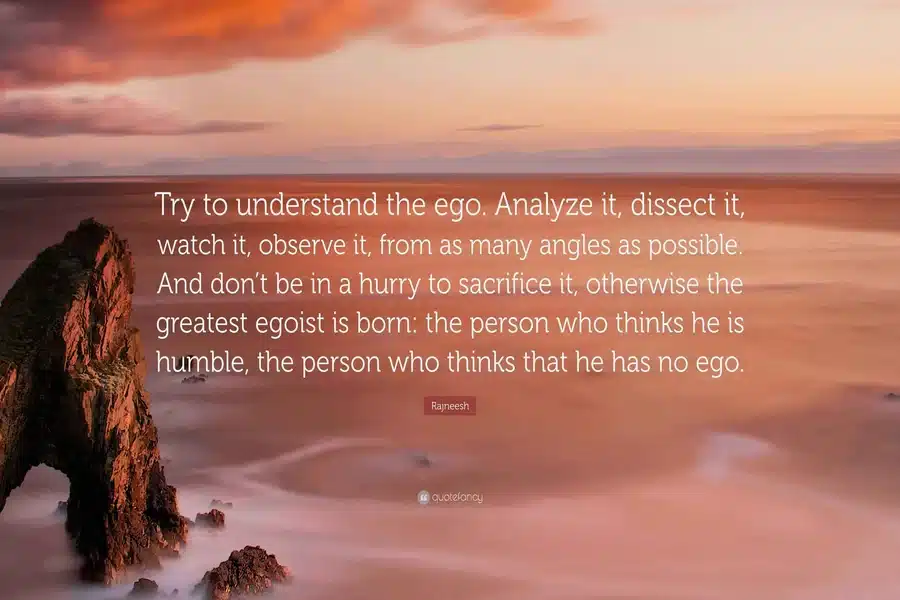How to Analyze Quotes for Deeper Understanding


Quotes can be used to inspire people, bring a thought or even gain great insights into human nature, philosophy, and life. Be it a well known quote by a renowned philosopher or just a plain utterance of a dear one, quotes usually have a deeper touch of meaning in them than what meets the eye. Nevertheless, in order to employ a quote or profit by it, it is crucial to go deeper and interpret the message behind it. Quotes can reveal their true meanings because by examining them, it is possible to understand the circumstances under which they were uttered and to use their messages in personal lives.
Here, we will look into how to study quotes in this article and benefit from them through learning powerful techniques, methods and examples that can draw wisdom out of any quote. Cappsun brings practical tech solutions for modern businesses.
Examine the Source of the Quote
Before diving into the analysis of a quote, it’s important to consider its source. Who said it? When and where was it said? Understanding the context of the speaker and the circumstances surrounding the quote can provide valuable insights into its meaning.
Why the Source Matters:
- Historical and Cultural Context: The time period in which a quote was made can significantly impact its meaning. A quote from a historical figure like Martin Luther King Jr. or Albert Einstein will carry different implications than a modern-day quote from a popular social media influencer.
- Personal Perspective: Knowing the speaker’s background, profession, and personal experiences can shed light on the context of their words. For instance, a quote from a philosopher may delve into abstract thinking, while a quote from a motivational speaker might focus on personal achievement and resilience.
- Intended Audience: The audience to whom the quote was directed can also reveal much about its meaning. A political speech, for example, may use quotes to address the concerns and aspirations of a specific group.
By considering the source, you can better understand the intentions behind the quote and how it fits into the broader historical, social, or personal context.
Break Down the Language and Structure
Once you’ve identified the source of the quote, the next step is to carefully examine the language and structure. How is the quote phrased? What specific words or phrases stand out? Language can be incredibly powerful, and every word in a quote is chosen deliberately to convey a specific message. Start your journey of success with the motivation at TheQuotive.
Key Elements to Consider:
- Choice of Words: Are the words simple or complex? Do they evoke emotions or stimulate critical thinking? For example, words like “freedom,” “hope,” and “justice” carry deep emotional weight, whereas words like “analysis” or “reasoning” might prompt more logical thinking.
- Metaphors and Similes: Many quotes use metaphors, similes, or analogies to convey abstract ideas in a more tangible way. Identifying these figurative language elements can help you understand the deeper meaning. For example, “Life is a journey” is a metaphor that suggests life involves growth, challenges, and progress.
- Pacing and Rhythm: The structure of the quote—its length, pacing, and rhythm—can also play a role in its impact. A short, punchy quote might be designed for immediate action, while a longer, more complex quote might prompt reflection and contemplation.
By analyzing the language and structure, you can uncover the nuances in the quote that add depth and significance.
Identify the Core Message
Every quote carries a central message, but it’s not always immediately obvious. To gain a deeper understanding, try to distill the essence of the quote. What is the speaker trying to convey in a few words? What core truth or principle does the quote express Smileyworldz?
Ask Yourself:
- What is the main point? Try to summarize the quote in one sentence or even one word. For instance, the famous quote by Mahatma Gandhi, “Be the change that you wish to see in the world,” can be boiled down to the idea of personal responsibility.
- What is the speaker advocating for? Is the speaker encouraging action, reflection, change, or acceptance? Understanding this can clarify the purpose behind the quote.
Breaking down a quote into its core message allows you to grasp its central idea and connect it to larger themes in life or philosophy.
Explore the Emotional and Psychological Impact
Quotes often evoke emotions, whether they make us feel inspired, empowered, sad, or introspective. Pay attention to how the quote makes you feel and consider why it has that emotional impact. The emotional aspect of a quote can reveal much about its deeper meaning and significance.
Reflect on the Emotional Tone:
- Positive Emotions: Does the quote inspire hope, love, or excitement? Quotes with positive emotions often focus on personal growth, achievement, or optimism.
- Negative Emotions: Alternatively, does the quote stir feelings of loss, sadness, or fear? These quotes may deal with themes like struggle, impermanence, or the harsh realities of life.
- Balance of Emotions: Some quotes are designed to evoke a balance of emotions—such as sadness followed by hope or hardship followed by resilience. This duality can make the quote more profound, offering both a challenge and a solution.
The emotional impact of a quote can often reveal the underlying message the speaker is trying to communicate, whether it’s about perseverance, love, fear, or hope.
Consider the Philosophical or Moral Implications
Many quotes delve into deeper philosophical or moral questions, raising issues about ethics, purpose, and the meaning of life. To analyze a quote for a deeper understanding, consider the broader philosophical or moral implications it presents. Is the quote advocating for a particular way of life or a specific moral stance?
Key Philosophical Questions to Consider:
- What does the quote say about human nature? For example, a quote like “Man is the only creature who refuses to be what he is” (Albert Camus) challenges the way we view human identity and our inherent tendencies toward self-deception.
- What ethical or moral values does it suggest? Some quotes promote virtues like kindness, honesty, and integrity, while others might challenge conventional ethics by questioning the status quo or advocating for rebellion.
- How does it relate to universal themes? Many quotes address universal human themes such as love, justice, freedom, or the search for meaning. By identifying these themes, you can understand the quote’s broader relevance to human life.
Considering the philosophical or moral implications of a quote can provide insight into the worldview it reflects and the principles it aims to impart.
Reflect on Its Application to Your Life
A quote’s true value comes when you can apply its message to your own life. After analyzing the meaning of the quote, consider how it relates to your personal experiences, challenges, or aspirations. How can you integrate the wisdom of the quote into your thoughts, behaviors, or decisions?
Questions to Ask Yourself:
- How does the quote resonate with me personally? Does it challenge your current mindset or reinforce your beliefs? Does it offer guidance or comfort in a particular area of your life?
- Can I apply the lesson to my own actions? Think about how you can embody the message of the quote in your day-to-day life. For instance, a quote about perseverance may encourage you to keep pushing through a tough situation at work or in your personal life.
- What change can I make based on the quote? Sometimes, analyzing a quote can lead to a practical change in behavior. If a quote about kindness resonates with you, it might inspire you to treat others with more compassion.
By applying the message of a quote to your own life, you can transform it from a simple phrase into a powerful tool for personal growth.
Connect the Quote to Larger Themes
To deepen your understanding of a quote, try connecting it to broader themes and ideas. How does the quote relate to concepts in philosophy, literature, religion, or psychology? Is there a wider cultural or historical context that influences its meaning?
Examples of Larger Connections:
- Philosophy: A quote about the nature of existence may tie into existentialist thought or the philosophy of self-determination.
- Literature: A quote from a novel might relate to a broader literary theme, such as the hero’s journey, tragedy, or the search for identity.
- Religion and Spirituality: Many quotes are rooted in religious or spiritual teachings. Analyzing the spiritual implications can offer a deeper understanding of the message.
- Psychology: Some quotes deal with the human psyche, motivation, or behavior, providing insights into psychological principles.
By connecting the quote to larger themes, you enrich your understanding and gain a more comprehensive perspective.
Conclusion
The analysis of quotes as a way of getting a deeper picture is beyond seeing words on the page. It involves taking a look at the circumstances, the wording, the appeal, the philosophical implication and correlation to self to the quote. These factors will is able to open the depth of the quote and be able to include its wisdom in your life. No matter whether quote motivates you to act, think about your personal values, or question your beliefs, knowing deeper information about the quote may bring your self-development, higher awareness, and more valuable life.




